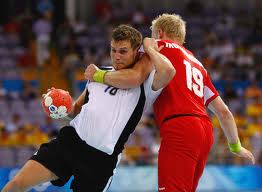The situation is that the International Olympic Committee (IOC) needed to cut down its number of ‘core sports’ in the summer program to 25, and the recommendation from the IOC Executive Board is now that wrestling is the sport to be dropped. The sport that had seemed more vulnerable was Modern Pentathlon, notwithstanding its name one of the really old and traditional sports just like wrestling.
It is interesting to observe the arguments from the wrestling community, from the sports that narrowly escaped and also from the ones who are now, together with wrestling, left to compete for the chance to be an ‘additional’ sport in 2020. Some seem to think that a sport should be protected precisely because it has long traditions. Others emphasize instead that the ‘old’ sports need to renew themselves in order to remain relevant and interesting. This may in fact be what rescued modern pentathlon, which has gone from a five-day event to an intensive competition where even two of the components (running and shooting have been combined).
I would personally support the argument that all sports need to think about changing in ways that make them more appealing to new generations. Increasingly, there is a strong interest in sports that are dynamic or even adventurous. Speed and continuous action are key factors, something that we have seen in handball, where we have also tried to support this trend through appropriate rules changes. Similarly, the IOC has begun to use the Youth Olympic Games as a place to experiment and make room for new, modern sports that attract young participants and a young audience. I think this is a healthy trend, and I feel there should be an increased willingness to let new sports be added on a temporary basis and evaluated against some of the stagnating traditional events.
The reaction to the proposed exclusion of wrestling has also followed ‘geopolitical’ lines. In one way I think this makes sense. A sport that has a strong following on a truly global basis would seem to have more merit than one that continues to be limited primarily to one continent or to a small group of countries. These arguments were heard when baseball and softball lost their status, and people now seem to argue against table tennis, because nobody from outside a small number of East Asian countries seems to have a chance to compete at the very top level. And somehow it seems that every time that a sport which is popular in the United States comes under scrutiny, it is taken as a deliberate insult.
I would be inclined to argue that a bad record regarding doping, match fixing, corruption and bad governance should be factors of considerable relevance in determining whether a sport really deserves to be in the Olympics. Perhaps that approach would be of some help for those who try to fight for their respective sports to clean up their act, whether from the inside or the outside. On that score, some might argue that also handball would have its problems, but one might hope that this is a temporary situation. On other accounts, it does not seem that handball is in any serious danger of being a candidate for elimination. Some hope has instead been attached to the idea that beach handball might become recognized as an Olympic sport, along the lines of beach volleyball, but that may be a rather remote possibility.

